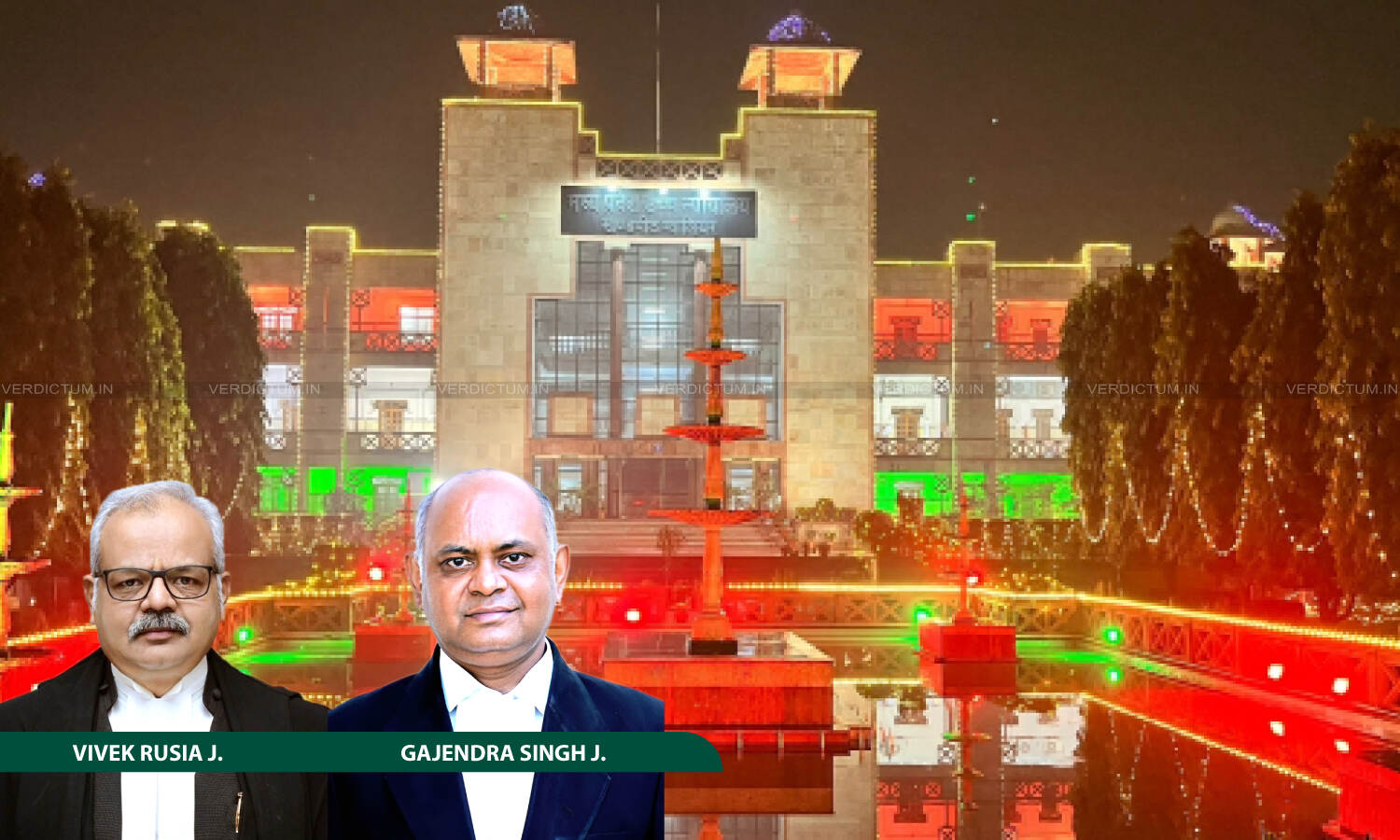Cruelty Simpliciter Is Ground For Divorce U/S. 13 Of Hindu Marriage Act: Madhya Pradesh High Court

The Madhya Pradesh High Court has rejected a man’s appeal against the dismissal of his suit seeking divorce after finding the instances cited by him to be false and concocted. The High Court also made it clear that cruelty simpliciter is now a ground for divorce under Section 13 of the Hindu Marriage Act.
The Appellant/husband had preferred the appeal before the Madhya Pradesh High Court under Section 19 of the Family Courts Act, 1984 assailing legality of the judgment dismissing his suit filed under Section 13(1)(1-a)(1- b) of Hindu Marriage Act (HMA) with further relief of divorce.
The Division Bench of Justice Vivek Rusia and Justice Binod Kumar Dwivedi said“What is cruelty in one case may not amount to cruelty in another case. It is a matter to be determined in each case having regard to the facts and circumstances of that case.”
“The cruelty simpliciter is now a ground for divorce under Section 13 of the HMA”, it added.
Advocate Sameer Verma represented the appellant while Advocate Pramod C. Nair represented the Respondent.
Factual Background
The appellant/husband and respondent/wife are a legally married couple and their marriage was solemnized as per Hindu rituals and customs in 1998. Out of their wedlock, one son was born and the respondent/wife has been living with her in-laws as a member of the joint Hindu family. The appellant/husband is Constable in S.A.F. It was the husband’s case that after marriage, the respondent/wife had gone to her parents and after six months, she came back to live with the appellant/husband. Respondent told the appellant that she did not like him as he consumed liquor. When he refuted the consumption of liquor, she again alleged that the appellant/husband might have developed a relationship with other women.
It was also alleged that she was not ready to fulfil marital obligations. Despite repeated advice, she did not mend her ways; therefore, he was constrained to send her to a matrimonial house. Since 2006, both of them have been living separately. The wife, on the other hand, alleged that the appellant/husband had developed a romantic relationship with a lady colleague and when she asked whereabouts of that lady, the appellant/husband filed the divorce petition on false grounds.
Reasoning
The Bench noted that the present case was unique in the sense that the respondent/wife, even being deserted by her husband in the hope that one day good sense would prevail over the appellant/husband, had not left her matrimonial house and she was undisputedly residing with members of family of the appellant.
“It is a case depicting the loyalty of the respondent/wife as typical Indian woman, who puts all her efforts to save her family life”, it said while also adding, “Despite the absence of her husband, she remained committed to her in-laws. She is serving them with care and affection, as she would have, if her husband was present, thereby reinforcing her moral stature. She does not use her sufferings for gain of sympathy, instead she channeled it inward, reflecting the Hindu ideal of the woman as Shakti – not weak, but submissive and powerful in her endurance and grace. Even when she left alone, she does not forsake, the Mangalsutra, the Sindoor or the symbols of her marriage status as her marriage to her is not a contract, but a Sanskara – an indelible sacramant.”
The Bench found the grounds advanced for getting a divorce from the respondent were very shallow and hollow. Specific ground taken by the appellant/husband that the respondent/wife had never been ready and willing to fulfil her marital obligation was falsified by the fact that out of their wedlock, a son was born, who has become major and is living along with other family members.
The other allegations levelled against the respondent/wife for making out a case of cruelty was that she had levelled allegation of illicit relation that appellant/husband had developed with some other lady colleague, but the Bench held that the same could not be taken as a fact creating cruelty as mentioned in Section 13(1)(ia) of HMA. The reason being that the respondent/wife had not been taken by the appellant/husband to live with her since last near about 19 years and in sheer frustration, she might have been constrained to think and allege that husband was having some romantic relationship with other woman.
Thus, finding the impugned order to be well-reasoned, the Bench dismissed the appeal.
Cause Title: A v. B (Neutral Citation: 2025:MPHC-IND:20801)
Appearance
Appellant: Advocate Sameer Verma
Respondent: Advocate Pramod C. Nair

